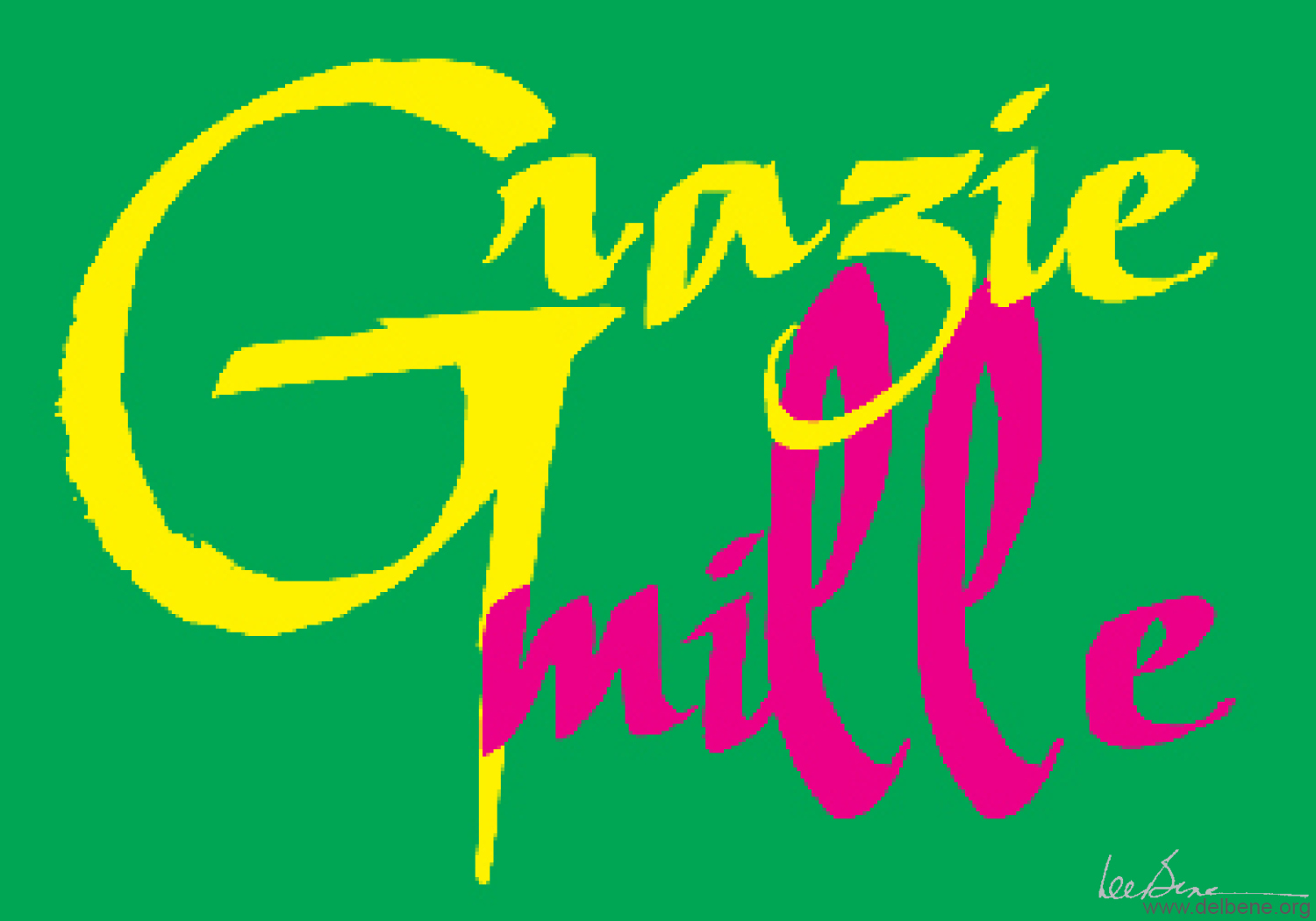
Mille Grazie Mille Grazie Message In Lightbox High Res Stock Photo Getty Images / Pier paolo
Translation of "Grazie mille" in English Noun thanks a lot many thanks thanks a million thank you very much thank you so much thanks so much Show more Grazie mille, sono quasi pieno. Thanks a lot, I'm almost stuffed. Grazie mille, siete molto gentili. Thanks a lot. It's very kind of you. Grazie mille, dallo pure a me. Thanks a lot, I'll take it.
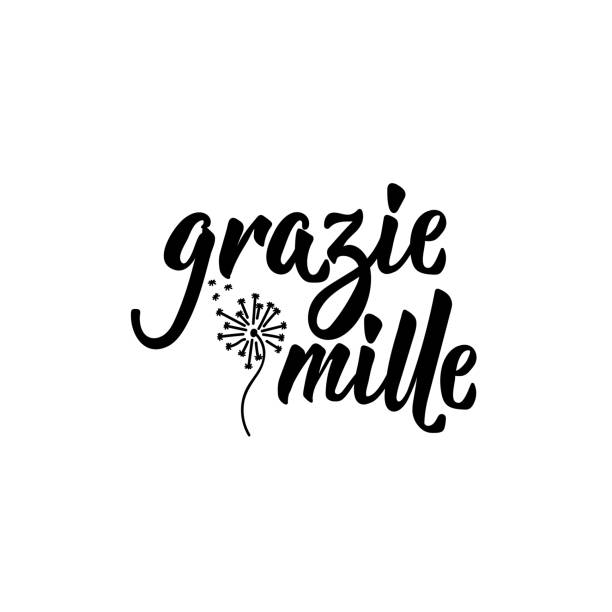
Mille Grazie Illustrations Illustrations, RoyaltyFree Vector Graphics & Clip Art iStock
1. Grazie mille Grazie mille, which means one-thousand thanks, is by far the most common way of saying thank you very much in Italian. In fact, I would say it's the one my husband and I use 95% of the time. Grazie mille per il vino. Era buonissimo! Thank you very much for the wine. It was delicious!
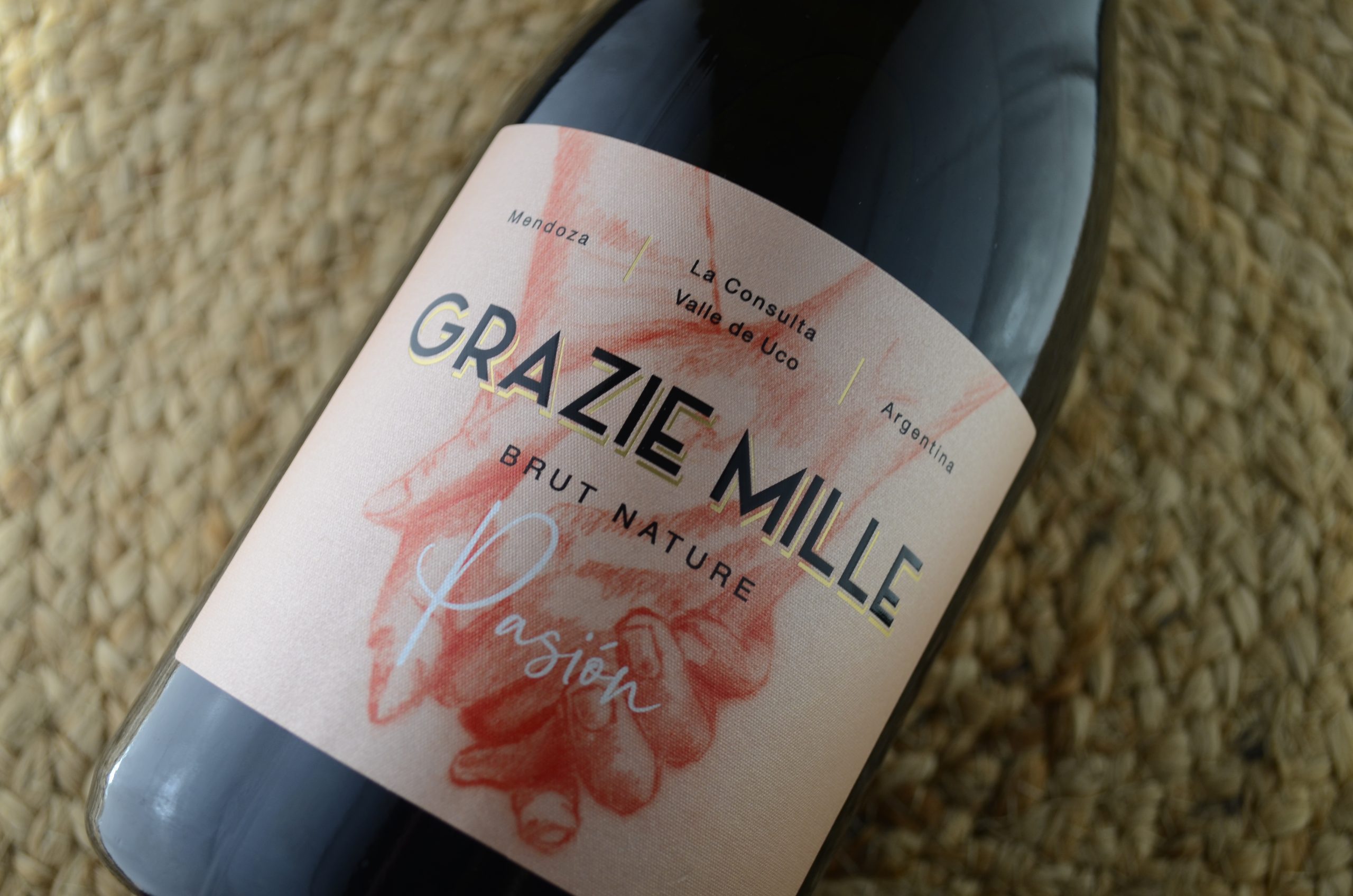
Grazie Mille presenta su primer espumoso Rincon Bon Vivant
1. La ringrazio ("thank you") "La ringrazio" is a more polite way to say "grazie." It's a formal way to say "thank you," used when you are speaking to someone you want to show respect to, like a stranger or an elder.
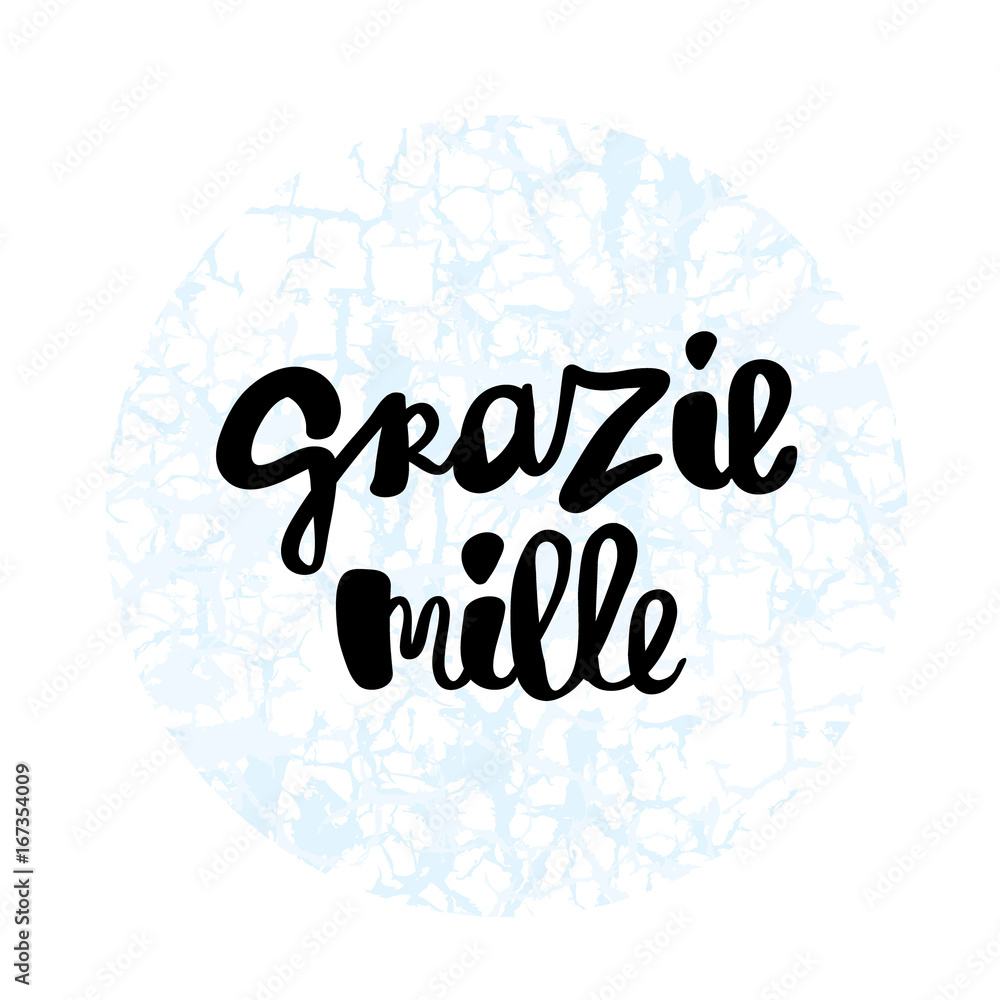
Grazie mille thank you very much in italian lettering design Adobe Stock
Give a million (or a thousand) thanks with grazie mille English speakers are more familiar with this saying as "a million thanks," but in both French and Italian, the same sentiment of gratitude is offered as "a thousand thanks." While mille sounds like the English word "million," it actually translates to "thousand." 5.
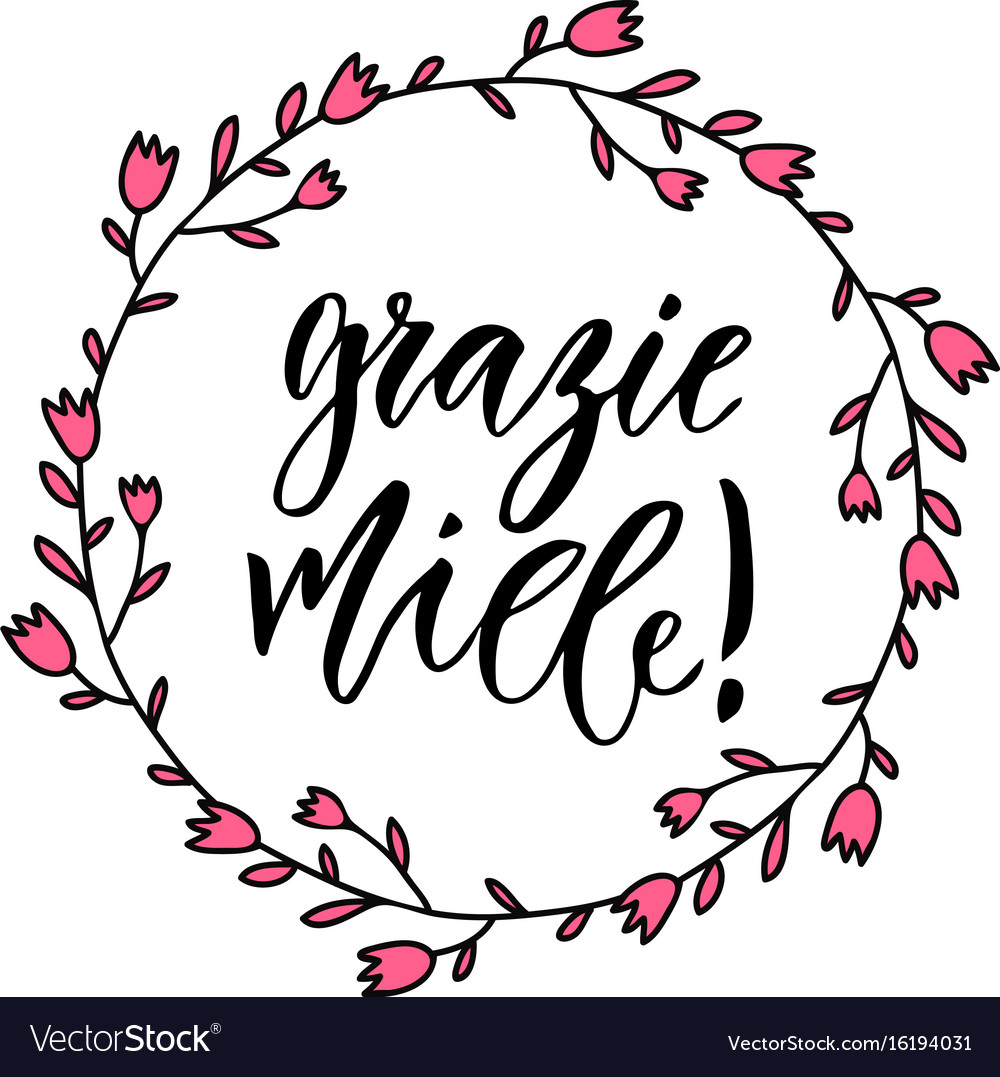
Grazie miele thank you very much in italian Vector Image
Grazie - The easiest way to say 'thank you' in Italian Despite the title of this article, I'd like to cover all the basics and start with the easiest and most common way of saying thank you in Italian: grazie (pronounced GRAHT-see-eh ).
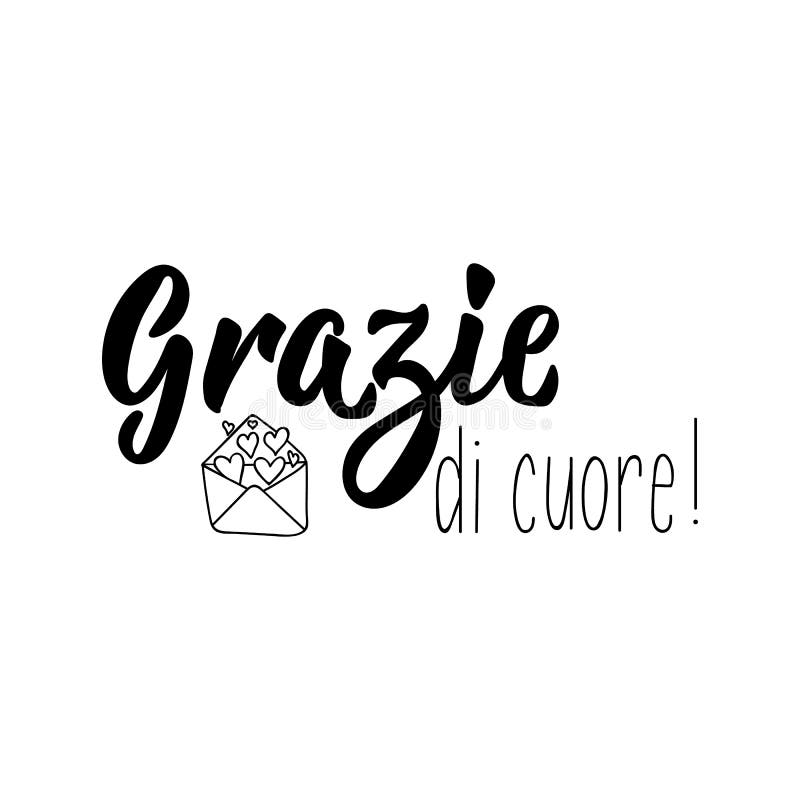
Grazie Mille Thank You Very Much In Italian Lettering Design Stock Vector Illustration of
Translation Google's service, offered free of charge, instantly translates words, phrases, and web pages between English and over 100 other languages.

Grazie Mille Thank You Very Much In Italian Lettering Design Stock Illustration Download Image
When visiting Italy or interacting with Italian speakers, expressing gratitude is an essential aspect of polite communication. One of the most common expressions of thanks in Italian is "grazie mille," which translates to "thank you very much" in English. In this guide, we will explore both the formal and informal ways to say "grazie mille" in Italian, highlighting regional variations where.

Mille Grazie Mille Grazie Message In Lightbox High Res Stock Photo Getty Images / Pier paolo
Grazie Mille! - Expressing Appreciation Thu, 12/23/2010 - 06:08 English speakers tend to overdo "Please" and "Thank you", just as we famously say "Sorry" too much but we don't think that you can ever be too polite in Italy! Here are some ways to express thanks for those Italian Christmas gifts and for that wonderful Italian hospitality:
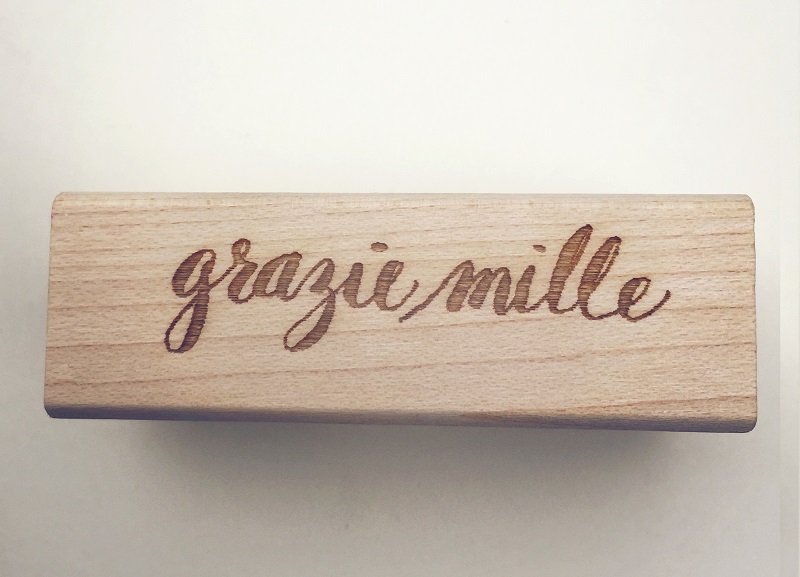
10 Italian Phrases for Your Trip to Italy
That's when you can't help but exclaim, 'Grazie mille!' in Italian, which means 'Thanks a million!' This expression is a more emphatic way to say thank you, conveying a deep sense of appreciation. The phrase 'grazie mille' consists of two words: 'grazie', which means thank you, and 'mille', which translates to a thousand.
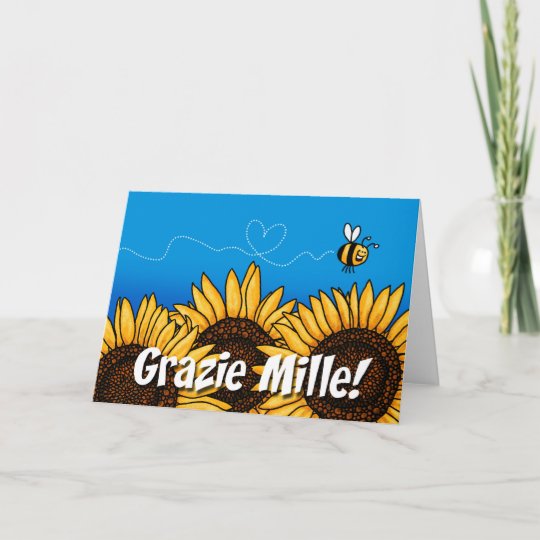
Grazie mille! (Italian Thank you card) Zazzle.co.uk
How to Say "Thank You Very Much" in Italian: Grazie Mille. Italians will say grazie mille or mille grazie (literally "thanks a thousand" and "a thousand thanks") to say "thank you very much". The proper English idiom to replace grazie mille or mille grazie would be "thanks a million".
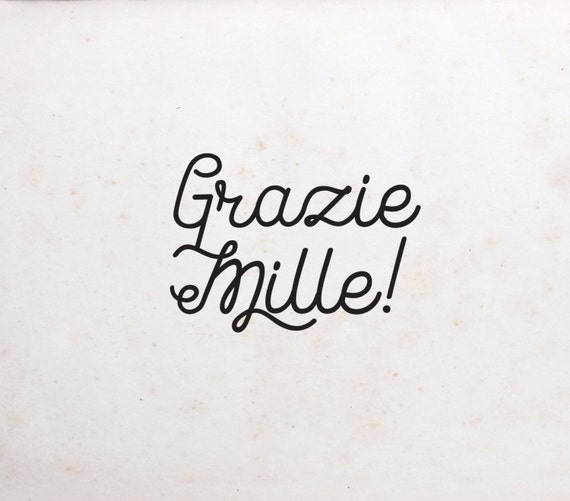
Grazie Mille Grazie Mille Vive la experiencia Italiana en Madrid See 1,165 unbiased
mille adjective one thousand, thousand, umpteen See Also in English thank verb grazie, ringraziare much noun, adverb tanto, molto, gran parte, assai, più o meno you pronoun tu, voi, vi, ti, te so noun, conjunction, adverb così, tanto, perché, talmente, anche Nearby Translations grazie in anticipo grazie di tutto Grazie Dio! grazie Dio
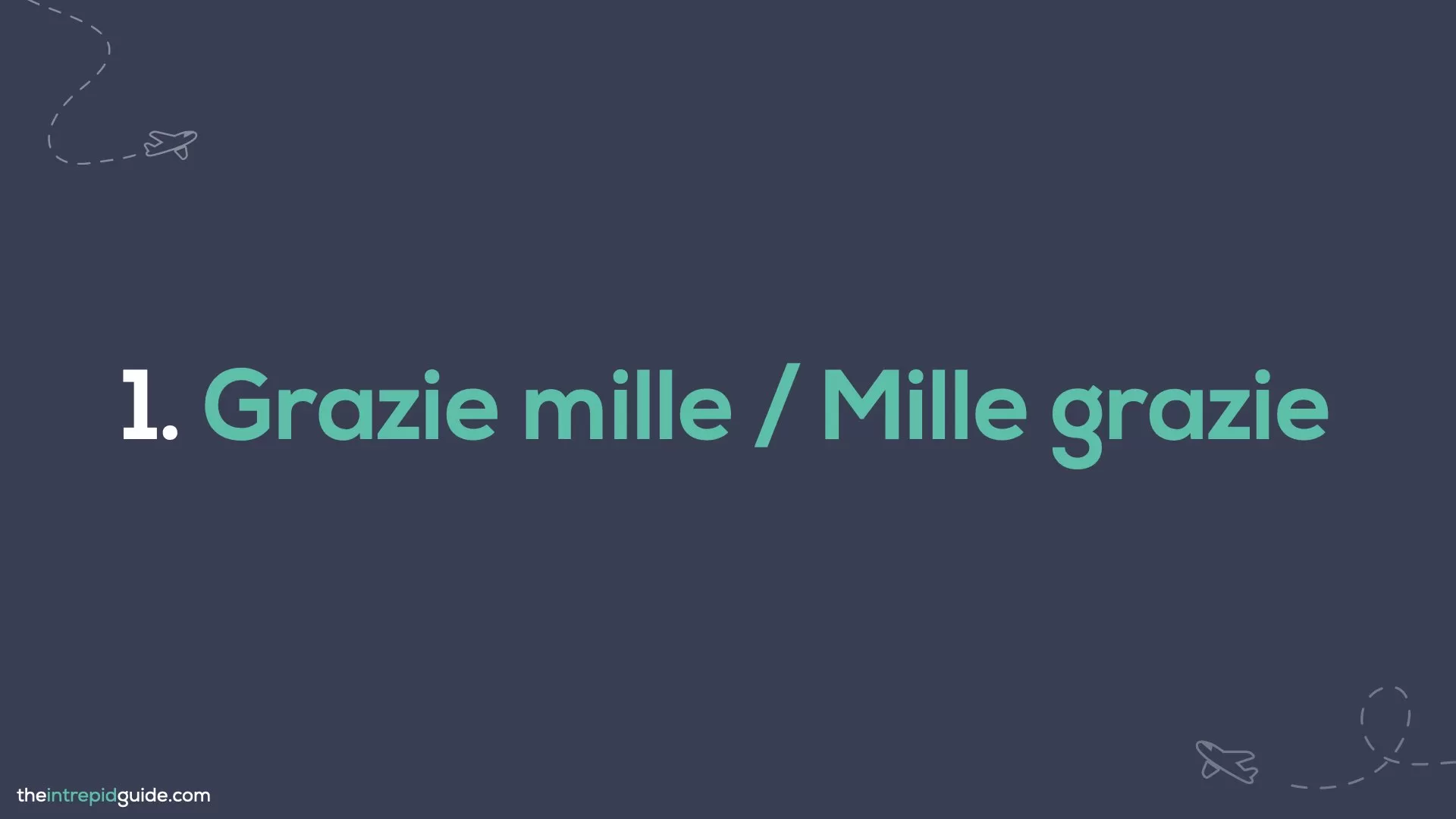
29 Meilleures Façons de Dire "Merci" en Italien Au Lieu de "Grazie" Le Guide Intrépide
If you're really happy about the service or the favor that you received you can show appreciation in Italian by using these forms: Grazie mille or mille grazie - a thousand thank you. Grazie tante - many thanks. Molte grazie - many thanks. If you want to put extra emphasis you can say: Grazie infinite - infinite times thank you.
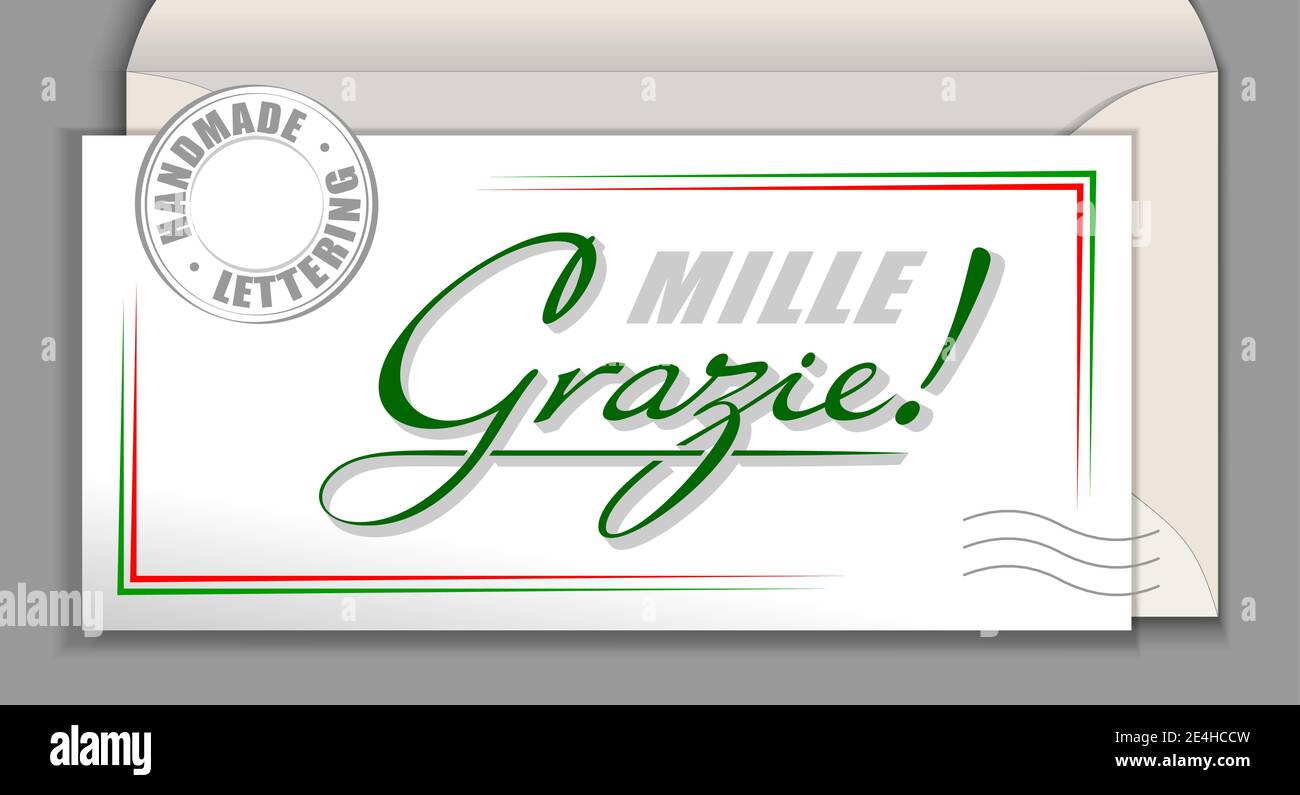
Escritura manuscrita en italiano Grazie mille Muchas gracias. Italia vector caligrafía frase
1. Say Thanks with Grazie 2. Express Gratitude with Grazie Mille 3. Casually Thank Someone with Molte Grazie 4. Sarcastically Thank Someone with Tante Grazie 5. Say "No, Thank You" with No, Grazie 6. Say "Thank You For" with Grazie per/di… 7. Thank Someone Extra Politely with Ti Ringrazio 8. Thank Someone Formally with La Ringrazio 9.
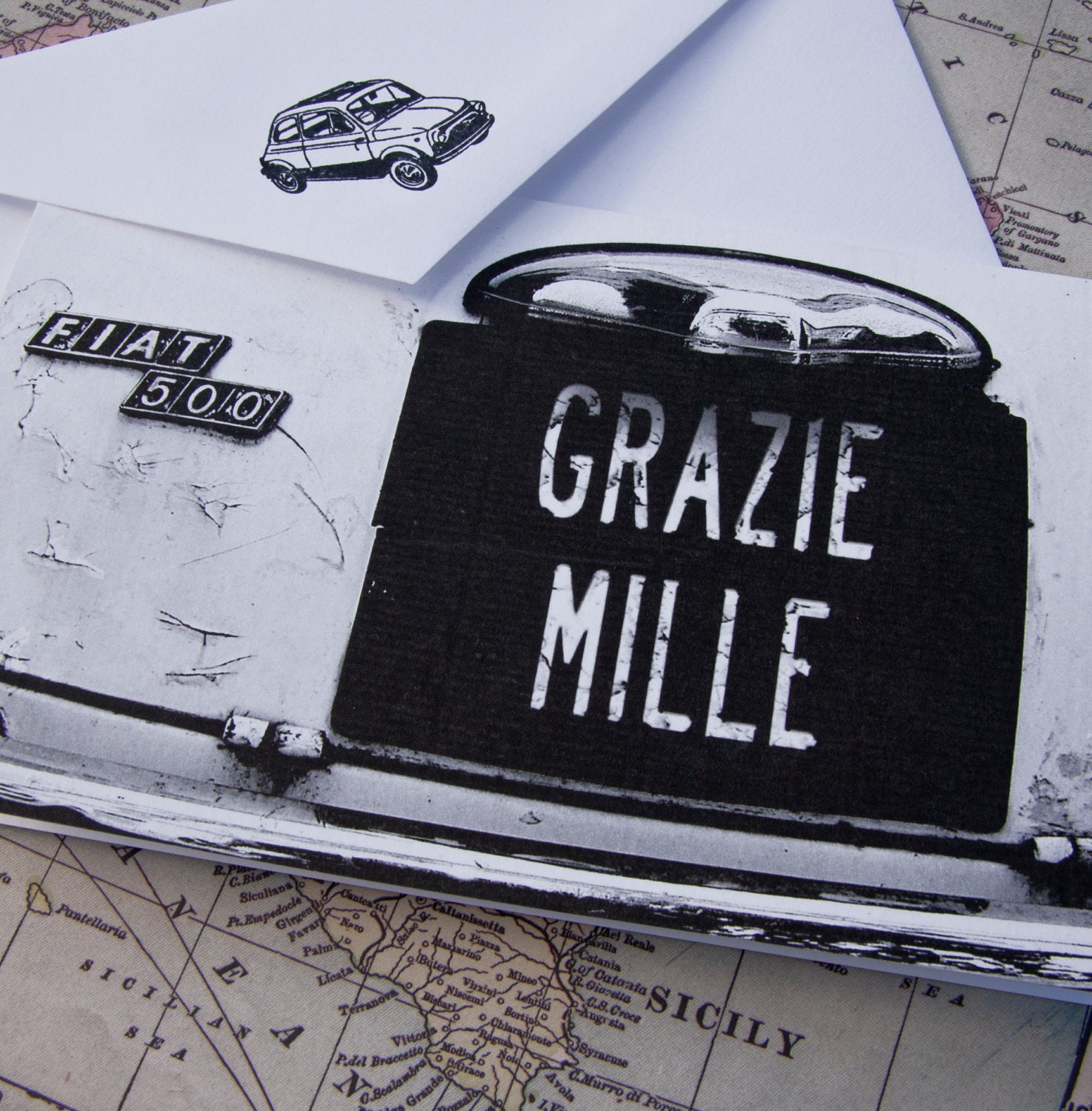
Grazie Mille Thank You card on fine Italian paper Pack of 10
Grazie mille is a more polite form. It can be translated with thank you very much, but literally it means a thousand grazie. When I say it, I like to think that "I wish a thousand of beautiful things" to the other person. Both grazie mille and mille grazie are correct, but nowadays the second is less common.

GRAZIE MILLE ITALIAN BAR » Calle Mayor, 31. Madrid.
1. Prego. The classic response to grazie is the solitary word prego, which originates from the verb pregare ( to pray, beg or request ). It is the safest way of saying " you're welcome " as it can be used with anyone, irrespective of their age or status. Grazie per avermi aiutato. - Prego!

Grazie mille thank you very much in italian lettering design stock vector illustration of
To say "thank you very much," Italians will say grazie mille or mille grazie (literally "a thousand thanks" and "a thousand thanks"). The correct English phrase to replace grazie mille or mille grazie is "thanks a million.". This is one of the oldest Italian phrases for saying "thank you.". It was popular in letters and.